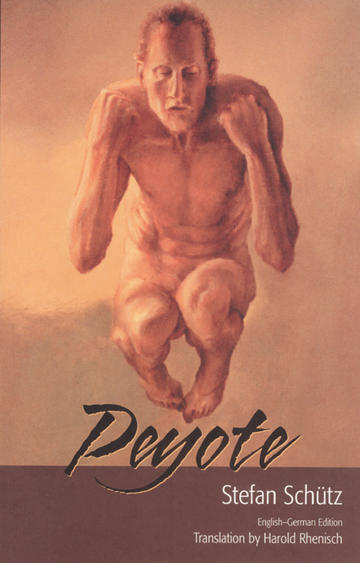About BC Books Online
BC Books Online was created for anyone interested in BC-published books, and with librarians especially in mind. We'd like to make it easy for library staff to learn about books from BC publishers - both new releases and backlist titles - so you can inform your patrons and keep your collections up to date.
Our site features print books and ebooks - both new releases and backlist titles - all of which are available to order through regular trade channels. Browse our subject categories to find books of interest or create and export lists by category to cross-reference with your library's current collection.
A quick tip: When reviewing the "Browse by Category" listings, please note that these are based on standardized BISAC Subject Codes supplied by the books' publishers. You will find additional selections, grouped by theme or region, in our "BC Reading Lists."
 Enlarge Cover
Enlarge Cover
In this darkly comic monologue by one of the masters of contemporary German theatre, a German tourist visiting Banff is forced to wait out a thunderstorm in the cabin of an old shaman. By the time the night is over he has been humiliated, mocked, and enlightened, has undergone a nightmare voyage through the worlds of the living and the dead, and has been initiated into ancient shamanistic mysteries and into the peyote cult. All is, however, not as it seems.
Stefan Schütz turns long practice at rewriting Greek tragedies in the context of contemporary dictatorships into a contemporary tragedy of the confrontation of the western cult of the individual with the Native American world of myth. The tragedy follows the stages of a peyote vision. It is a shocking world of black comedy which deconstructs romantic verbal, visual, and cultural clichés, including those of deconstruction itself. The tragedy is inescapable, unexpected, and devastating, but is made even more human and generous for that.
In the course of this play's vision, the fall of the Berlin Wall, the guilt of patriarchy, the patronizing and colonializing qualities of contemporary tourism, and the seductions of technology merge with stories of Windigo and Coyote, with the scenery of Banff, with a playful use of language, in one writer's uncompromising search for a world of humanity past seductions of Utopia. Peyote is a dual-language publication: English on one side of the page, German on the other.
Stefan Schütz was born in 1944 and started his career working for the Berliner Ensemble in East Berlin. One of East Germany's strongest dissident writers, he moved to the west in 1980, and now lives in Berlin. He has written over two dozen plays, as well as novels and other prose works. In 1985 he received Germany's highest literary award, the Alfred Döblin Prize, for his prose work, Medusa. Peyote is the result of a two-year stay in Canada.


